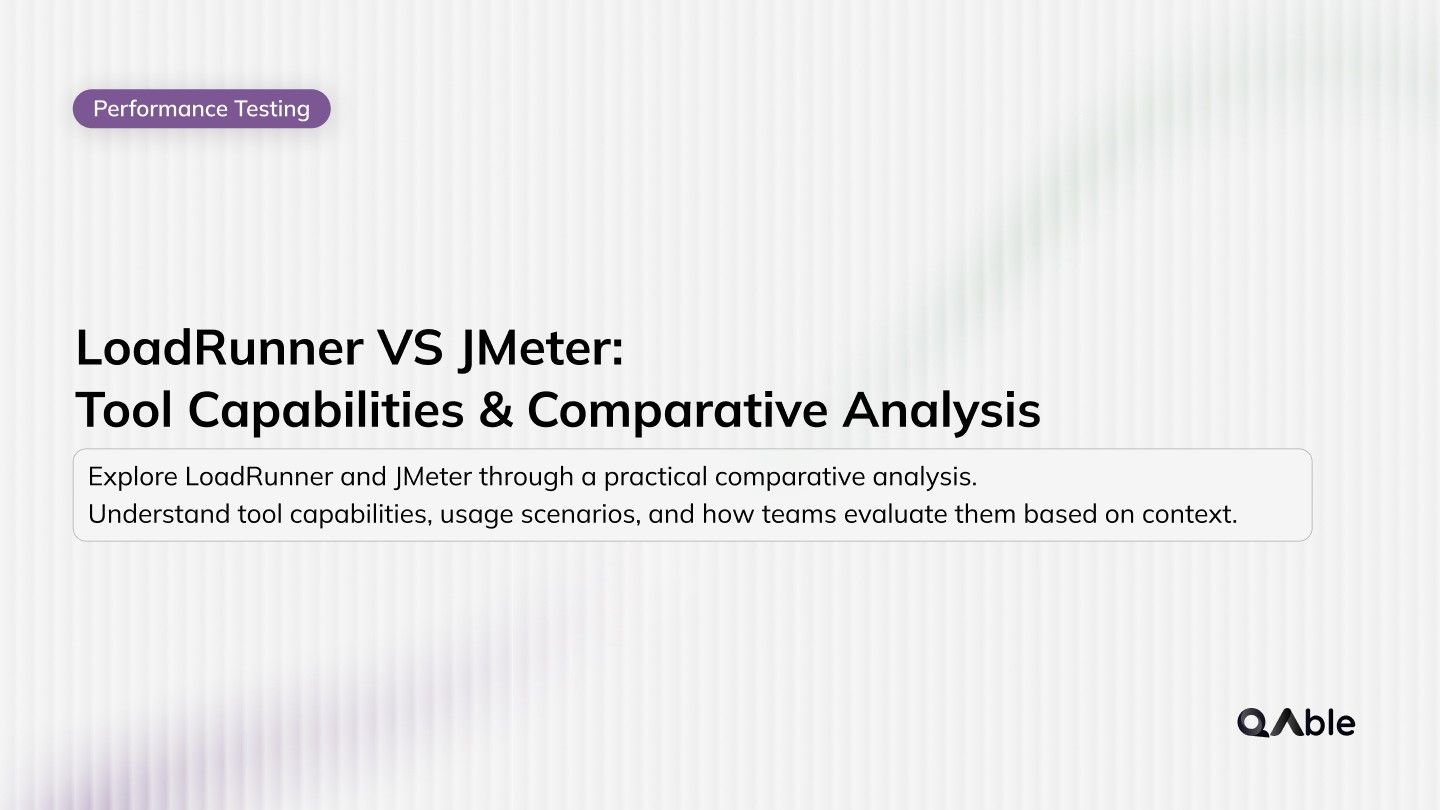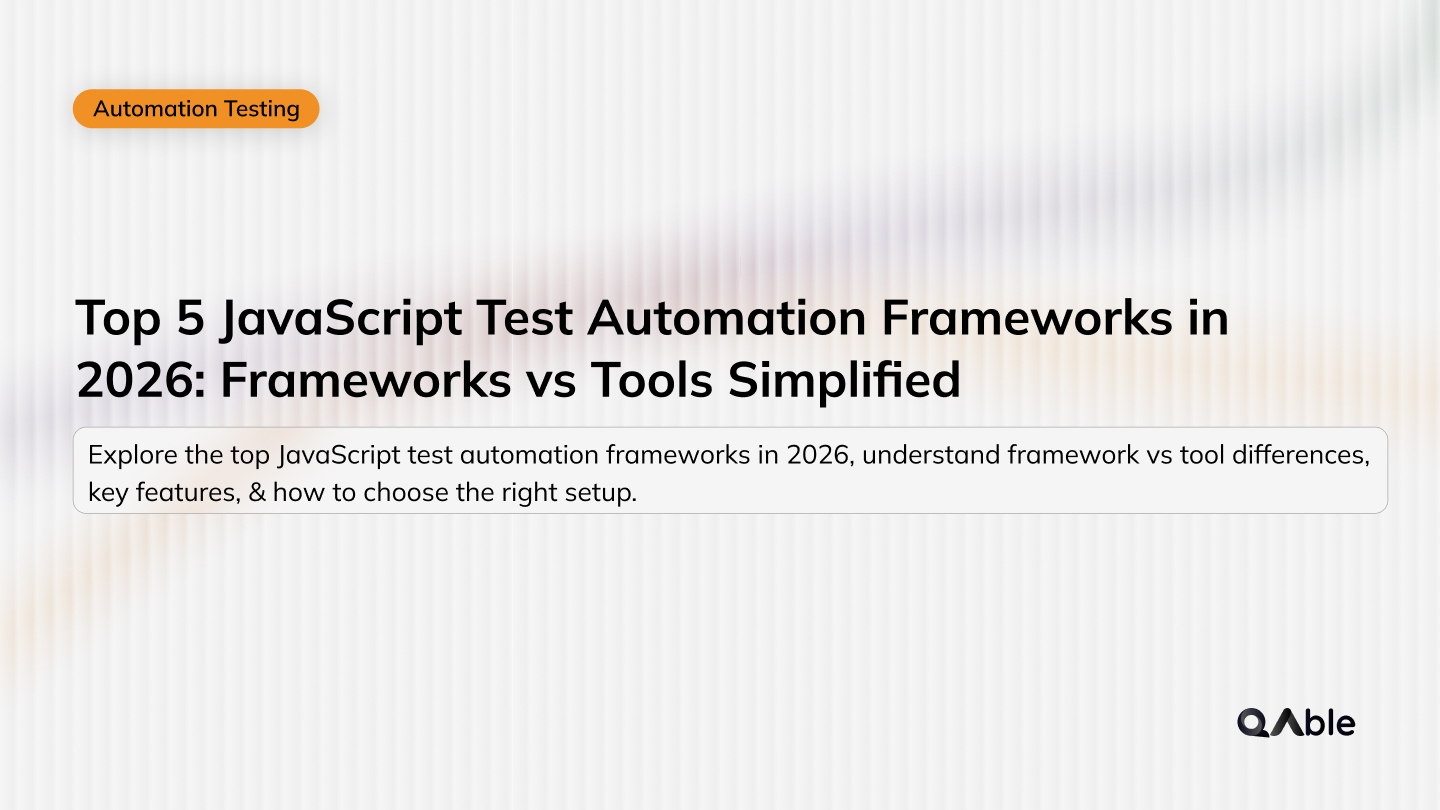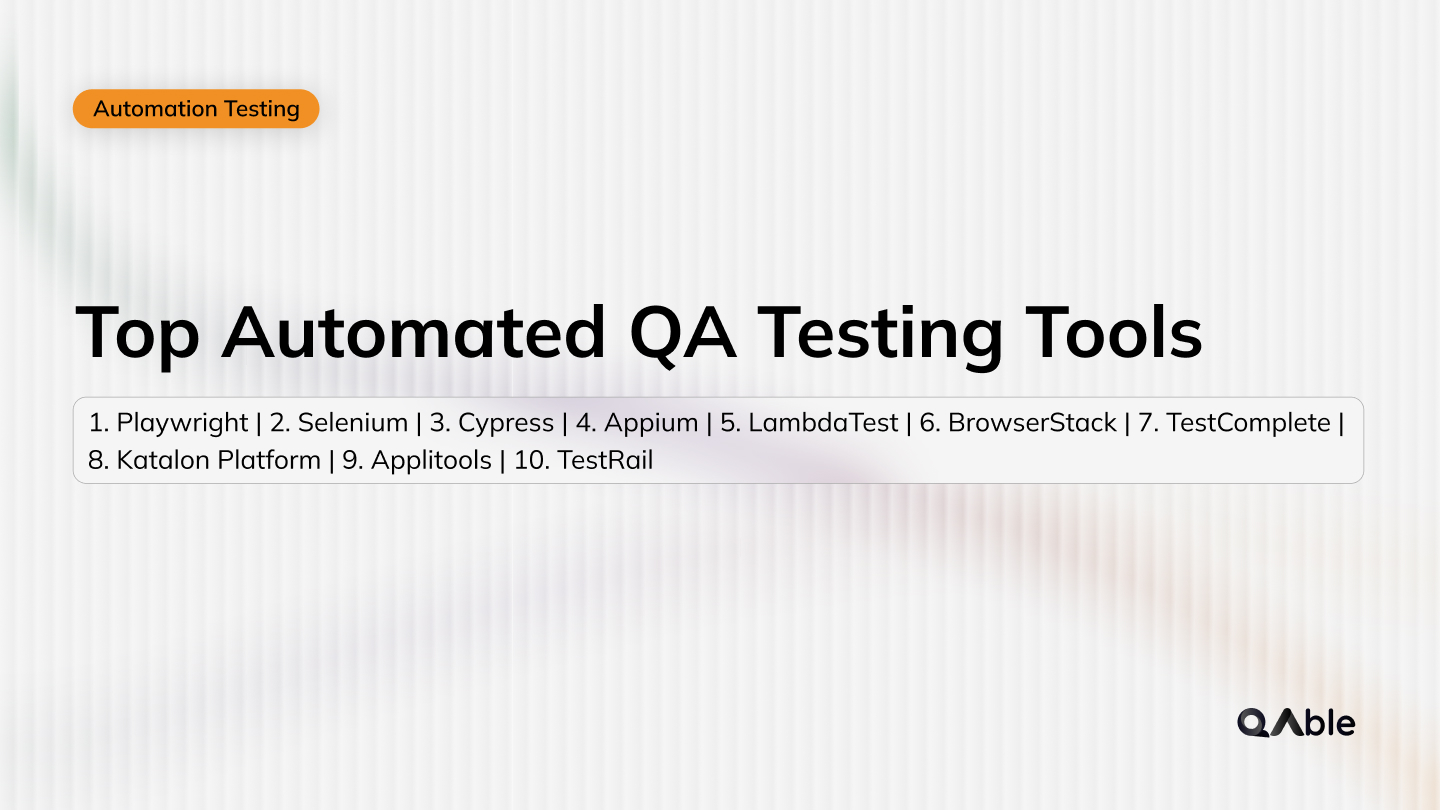Table of content
SHARE THIS ARTICLE
Is this blog hitting the mark?
Contact Us
Table of Content
- The Critical Role of Financial Software Testing
- Testing Payment Gateways
- The Complexities of Banking Application Testing
- Testing Fintech Products: Addressing Unique Challenges
- The Need to Hire Mobile App Testers with Fintech Expertise
- FAQs
There has been tremendous innovation in the financial technology (fintech) industry in the last few years. With the emergence of new and unique products and services in the banking and monetary sector by fintech companies, there is a demand for effective and efficient testing. Compared to all other industries, the risks of errors and mistakes are critically higher in fintech because a small mistake can cost retailers or violate financial regulation standards.
When assessing the efficiency of new banking applications or payment gateways, it is crucial to maintain accurate metrics and be familiar with the fintech industry. This blog will reveal some of the best practices for mastering financial software testing and provide a guide to excellent financial application testing.
The Critical Role of Financial Software Testing
Financial software systems handle essential tasks like payments, transactions, customer information management, and compliance. Due to the critical nature of the tasks performed with the help of the software, even a small glitch can result in catastrophic consequences. They make financial transactions difficult, cause data leaks, or incur legal implications due to non-compliance with regulatory standards.
Financial software testing is different from general software testing because of the higher standards that this type of software has to meet, namely it has to be as precise as possible, to process large numbers of transactions and to protect sensitive information. These systems need to run seamlessly to protect the customer trust and to minimise the risk of major monetary losses.
Testing in fintech, therefore, is not merely pointing out existing bugs or glitches. It includes the ability to scale up the systems to millions of users, protection against various security risks, and adherence to rules and regulations such as PCI DSS and GDPR. Consequently, financial software testing requires an elaborate strategy that takes these considerations into Account.
Testing Payment Gateways
A major component of fintech applications is the payment gateway, which facilitates online financial transactions. Whether it’s an e-commerce site, a banking app, or a peer-to-peer payment system, the payment gateway must function seamlessly to ensure customer satisfaction.
Payment gateway testing is a specialised form of testing that requires validating the transaction process from start to finish. This includes testing various payment methods, such as credit cards, digital wallets, and bank transfers.
Key Role of Payment Gateways:
Payment gateways are important for online monetary transfer activities in the e-commerce market, banking applications, and other applications of P2P payment. All these require that they work in harmony to facilitate the transactions and satisfy the consumers.
Validating Transaction Process:
It involves checking all the possible facets of the transaction from the beginning to the end and includes such payment options as credit cards, e-wallets (PayPal, Google Pay), and bank transfers. The system should perform each method without any or minimal flaws or errors.
Simulating Real-World Scenarios:
It involves copying real-life scenarios, for instance, successful purchases, declined payments, or even entry of wrong card details. This is to make sure that the system works well and the user is taken through each step in the right manner.
International Transactions and Currency Conversion:
For fintech applications operating globally, testers ensure the gateway handles currency conversions accurately and processes international payments without issues.
Handling Transaction Failures:
The system must manage transaction failures, such as insufficient funds or network issues, gracefully. It should offer clear error messages and options to retry or resolve the payment issue without frustrating users.
Security and Encryption:
Testers focus on verifying strong security measures, such as SSL encryption, to protect sensitive financial data during transactions. Ensuring compliance with standards like PCI DSS is essential to prevent fraud and hacking.
Load Testing for Peak Periods:
The gateway must handle high volumes of simultaneous transactions during busy times (e.g., holiday sales). Testers perform load testing to ensure the system can scale without delays, crashes, or performance issues.
Maintaining Customer Trust:
Ensuring payment gateways operate smoothly, securely, and reliably helps FinTech companies maintain customer trust and avoid financial disruptions.
The Complexities of Banking Application Testing
Banking applications, which have become central to how consumers interact with financial institutions, demand a thorough testing process. These apps allow users to manage their accounts, pay bills, transfer funds, and apply for loans—all from their smartphones or computers. Given their critical role, any failure in these systems can result in customer dissatisfaction or even legal issues.
How to test banking applications requires a nuanced approach that covers functional testing, security testing, and performance testing. Functional testing ensures that all features, such as account management, transaction history, and fund transfers, work as intended. Security testing is perhaps the most critical element, as banking apps handle highly sensitive customer data. Testers must ensure that data encryption, secure login protocols like multi-factor authentication (MFA), and vulnerability protection are all working effectively to prevent unauthorized access.
Another important aspect is user experience. Banking apps must be easy to use and accessible across different devices. The app’s user interface should be intuitive, and its performance should be consistent across smartphones, tablets, and desktops. Ensuring that the banking app performs well during peak transaction periods is also essential. Testers need to conduct stress and load tests to see how the app handles thousands of simultaneous users during times of high activity, such as the beginning or end of the month when users are likely to make payments or check their account balances.
To further complicate things, banking domain application testing must also ensure compliance with financial regulations. Financial institutions are heavily regulated, and their applications must comply with laws designed to protect consumer data and prevent fraudulent activities. Failing to meet these regulatory standards can result in hefty fines and damage to the bank’s reputation. Thus, the testing team needs to have a deep understanding of the financial regulatory landscape to ensure that the software is fully compliant.
Testing Fintech Products: Addressing Unique Challenges
The unique challenges posed by fintech products require a tailored approach to testing. These applications must not only handle complex financial transactions but also ensure data privacy and security. For example, a digital lending platform that processes loan applications must ensure that user data is protected at every stage of the transaction. Security testing becomes a vital component, focusing on encryption protocols, penetration testing, and vulnerability scanning to safeguard against data breaches and fraud.
Another challenge in testing fintech products is ensuring regulatory compliance. Different countries have different financial regulations, and fintech companies operating across borders must ensure that their applications comply with the rules in every jurisdiction. This involves rigorous compliance testing to ensure that the app meets industry standards and financial regulations like AML (Anti-Money Laundering) and KYC (Know Your Customer) requirements.
Also Read - How important is QA for Fintech companies
Moreover, FinTech products are often used on multiple platforms—mobile apps, web browsers, and desktops—which means testers must validate cross-platform compatibility. The app must function seamlessly across different devices and operating systems, providing users with a consistent and secure experience.
Lastly, fintech applications often handle heavy traffic, particularly during peak financial activity periods. Load testing is essential to determine how well the application performs under stress and whether it can scale up as needed without sacrificing performance or security.
The Need to Hire Mobile App Testers with Fintech Expertise
Given the complexity and importance of fintech applications, it is essential to hire mobile app testers with expertise in financial software. These testers need a deep understanding of financial processes, transaction flows, and regulatory requirements. They must also be well-versed in security testing, especially encryption protocols, and methods for protecting sensitive financial data.
When hiring mobile app testers for fintech products, look for professionals with experience in testing payment gateways, banking applications, and other financial systems. Automation testing is also crucial in the fast-paced fintech industry, where software updates and new releases are frequent. Testers skilled in automation can streamline the testing process and ensure that each new release does not disrupt existing functionalities.
Cross-platform testing experience is another critical skill for fintech testers. Fintech apps must work across a range of devices and operating systems, and testers must ensure that the user experience is consistent and secure, whether accessed via a smartphone or desktop computer.
Also read: Why Outsourcing QA is Essential for Fintech Success: A Complete Guide for CTOs
Conclusion
As fintech continues to transform the financial industry, the need for reliable, secure, and high-performance applications is more critical than ever. Mastering financial software testing requires a strategic approach that covers all aspects, from payment gateway testing to banking application testing. By addressing these challenges head-on and ensuring compliance with industry regulations, fintech companies can deliver exceptional products that meet customer needs while maintaining the highest standards of security and reliability.
At QAble, we specialise in delivering robust financial software testing services tailored to the unique needs of FinTech applications. Whether it’s securing a payment gateway or ensuring the reliability of a banking app, our team of experienced testers can help you achieve excellence in financial application testing services. Let us help you ensure your fintech products are ready for the challenges of today’s fast-evolving financial landscape.
Discover More About QA Services
sales@qable.ioDelve deeper into the world of quality assurance (QA) services tailored to your industry needs. Have questions? We're here to listen and provide expert insights


Nishil Patel is the Co-founder of QAble, delivering advanced test automation solutions with a focus on quality and speed. He specializes in modern frameworks like Playwright, Selenium, and Appium, helping teams accelerate testing and ensure flawless application performance.
.svg)














.webp)
.webp)
.png)
.png)











.png)



.png)

.png)

.png)






.jpg)






.jpg)
.jpg)
.jpg)




.webp)

